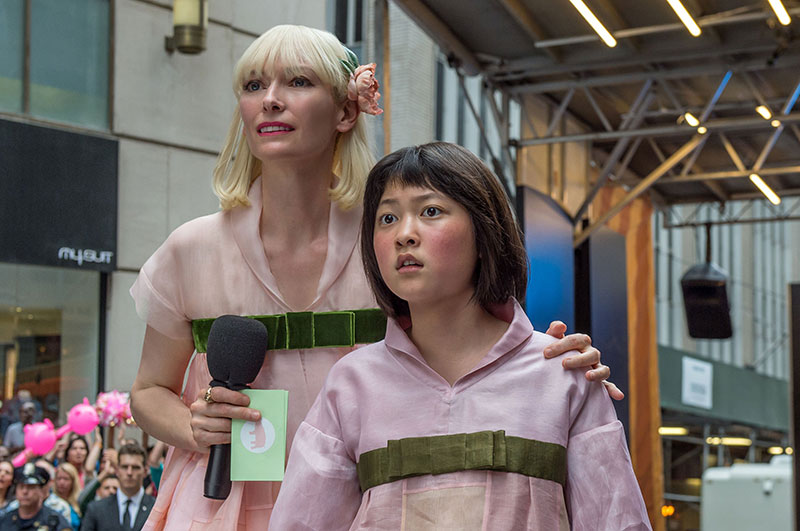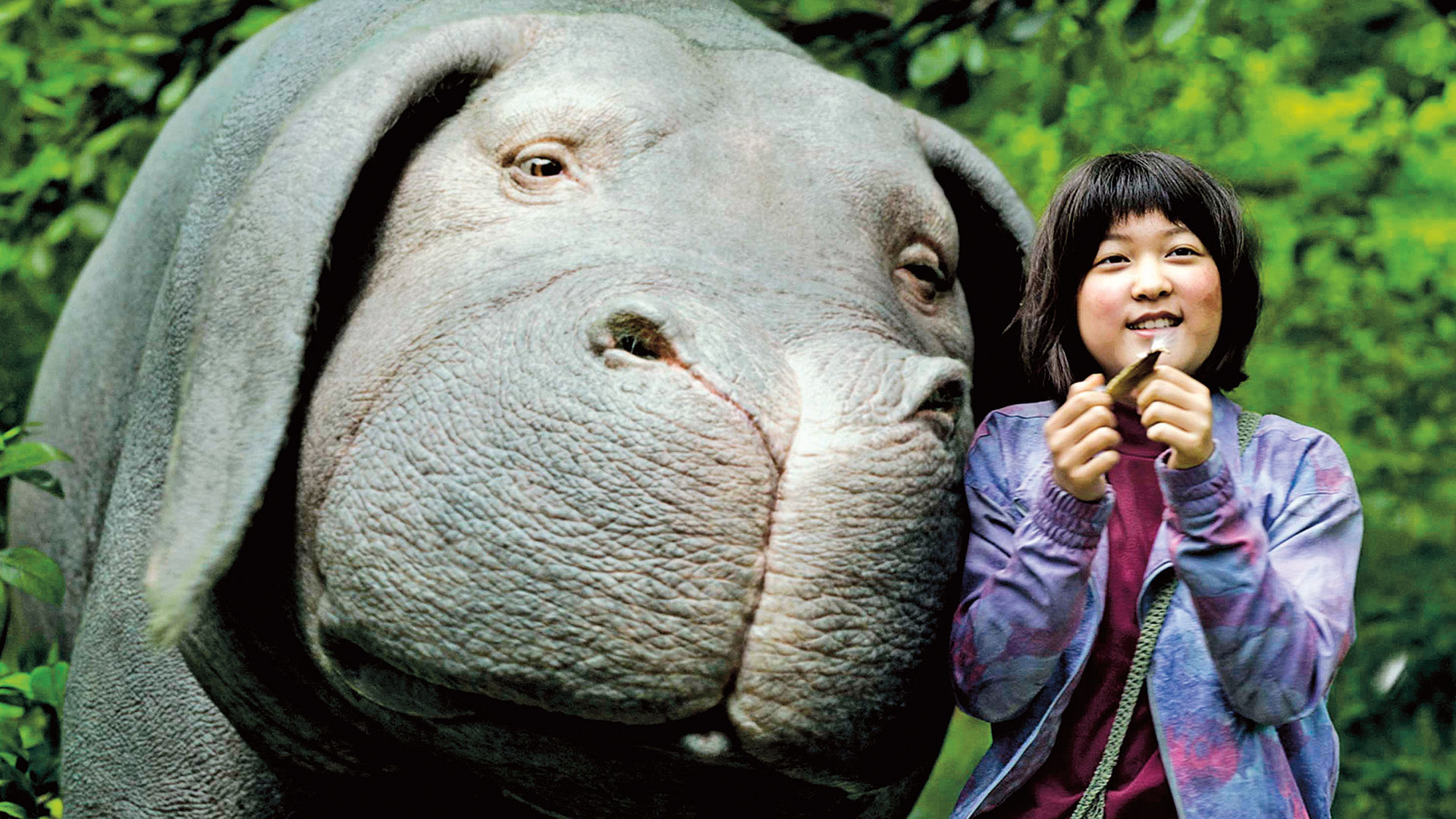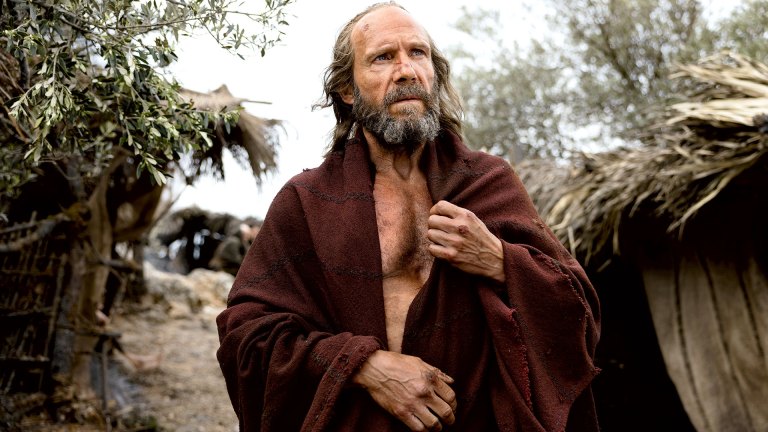Among the many things to savour about Okja, a new film by South Korean director Bong Joon Ho, is a deliciously wicked performance by Tilda Swinton. She plays Lucy Mirando, the CEO of a multinational food conglomerate. She’s a boardroom bully of the highest order – played with pitiless scorn by Swinton (even her dentures are risible) – and one reason for Mirando’s business-class villainy is her belief in the power of marketing. This plot detail is somehow apt because Okja is a film that delights in frustrating the best efforts of that shady profession.
Okja is a headscratcher, a glorious oddity fused from unlikely parts. A lavishly funded fantasy film featuring breathtaking action sequences in New York and Seoul, it is, at heart, a strange and delicate love story between a teenage girl and her pet pig. The film exudes sugar-rush levels of cuteness yet is alarmingly savage.
Its mood lurches from broad slapstick to sophisticated political satire. Some scenes carry the innocent charm of a Disney film. Others have a dark intensity that might trouble the most seasoned viewers. This isn’t just a challenge to conventional marketing but an affront – and all the better for it. Okja is the name of the pig raised by young Mija (Seo-Hyun Ahn) in a mountainous idyll in South Korea. The pig is huge: a rhino-sized creature with a gift for affection and, as we see in one nerve-shredding scene that has her rescue Mija from a cliff-edge, selfless loyalty. She’s also a miracle of computer-generated imagery. Brilliantly designed and animated by Bong’s team, Okja is voluminously real, and her early scenes with Mija in the forest have a fleshy conviction unequalled by the rest of the film.

But Okja is also a publicity stunt, an ambitious marketing scheme concocted by Mirando to make the idea of genetically-manufactured meat palatable to queasy consumers. The story, put about by Mirando’s slick campaign managers, is that Okja is one of a number of miracle piglets, birthed naturally to a pig in Chile. Farmed out to Mija’s grandfather, Okja has been raised to full growth but now Mirando’s local reps come calling to take the beast back to headquarters in New York.
Some have bemoaned Okja as the beginning of the end of traditional cinema
Having had Okja torn away from her – a scene that carries the primal-trauma impact of Elliott’s separation from ET – Mija follows the pig to Seoul, then to the US. As Mija learns the ultimate fate in store for Okja, the film offers a grim view of the realities of industrial meat production by corporations like Mirando’s. Without revealing too much, the origins of Okja are far less organically sound than Mirando and her publicists suggest: this is a film to put you off your hot dog.










